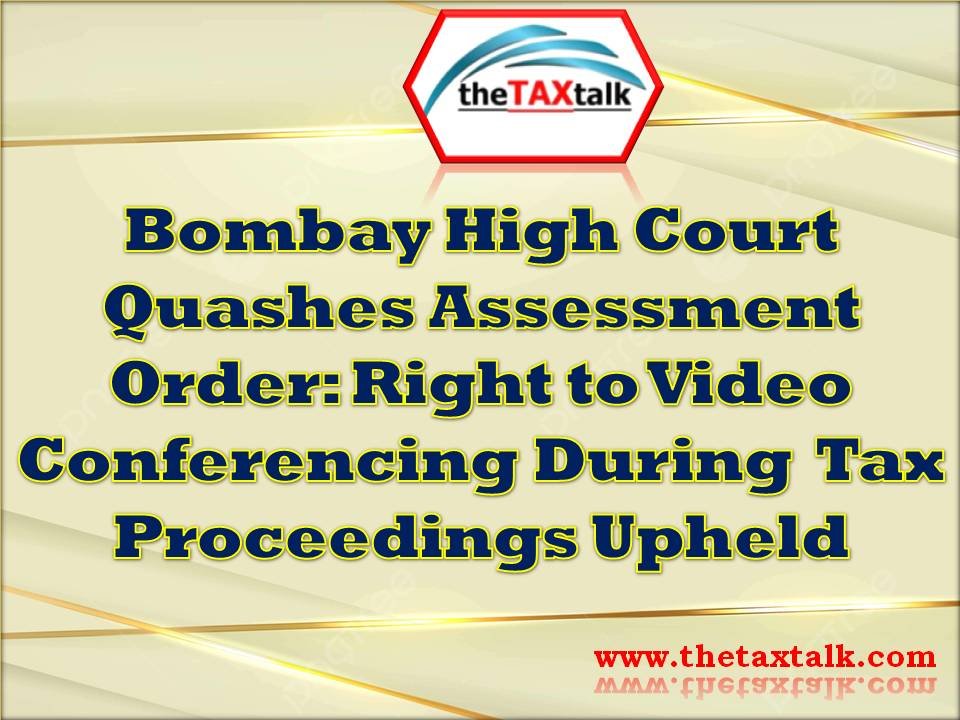![]()
Bombay High Court Quashes Assessment Order: Right to Video Conferencing During Tax Proceedings Upheld
In a significant judgment for taxpayers, the Bombay High Court has quashed an an assessment order due to the denial of a personal hearing, including through video conferencing, emphasizing that such a denial, when requested, is a breach of natural justice. The ruling, in the case of Pico Capital Private Limited vs. Deputy Commissioner of Income Tax & Ors., decided on January 7, 2025, by Justices M.S. Sonak and Jitendra Jain, highlights the crucial right of an assessee to be heard during assessment proceedings.
The High Court held that denying a personal hearing on the premise that an assessee has “nothing further to add” to their already filed reply is an inappropriate approach. The judgment underscored that if the law mandates a personal hearing, it should not be ordinarily denied, as the assessee must be allowed to convince the Assessing Officer (AO) of the merits of their version. This is particularly true when the law explicitly provides for a personal hearing upon the assessee’s request.
The court specifically referred to Circular No. F.No. 225/97/2021/ITA-II, dated 6th September, 2021 which outlines guidelines for the transfer of assessment/penalty proceedings to jurisdictional AOs. This circular clearly states that requests for personal hearings “shall generally be allowed to the assessee with the approval of the Range Head, mainly after the assessee has filed a written submission to the show-cause notice”. Crucially, the circular also specifies that “Personal hearings may be allowed for the assessee, preferably through video conference”. It further adds that if video conferencing is not technically feasible, personal hearings may be conducted in a designated area, and the proceedings may be recorded.
Pico Capital case, despite an explicit request for a personal hearing via video conferencing, the assessment order dated March 26, 2024, denied it. The Income Tax Department’s justification for denying video conferencing was that the proceedings had been transferred from the Faceless Assessing Officer (FAO) to the Jurisdictional Assessing Officer (JAO) on February 20, 2024, and thus, the video conferencing facility was not available. However, the High Court rejected this justification, citing the aforementioned circular which permits personal hearings even after such transfers, preferably through video conferencing.
The Bombay High Court set aside the impugned assessment order dated March 26, 2024, the consequential demand notice, and the penalty notice. The matter has been remanded back to the concerned respondent to dispose of the show-cause notice issued to the petitioner following the law and after granting the petitioner a personal hearing. The court also directed the concerned respondent to complete the assessment proceedings within three months.
This judgment serves as a vital precedent, reinforcing the principle of natural justice in tax assessments and ensuring that taxpayers are afforded a fair opportunity to present their case, even in the era of faceless assessments. It underscores the importance of adhering to the guidelines set forth by the Income Tax Department itself regarding personal hearings, particularly the preference for video conferencing
The copy of the order is as under:


